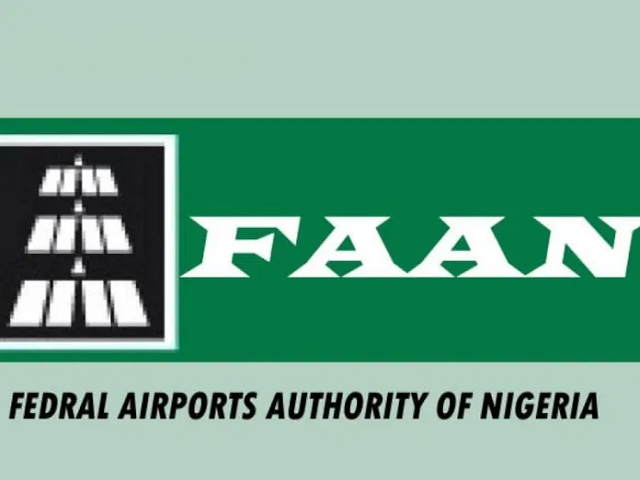Olumide Ibidapo is the Chief Executive Officer of FBN Insurance Brokers. In this interview, he speaks on the role of insurance brokers in negotiating insurance contracts and claims settlement in the best interest of all parties as well as the impact of the pandemic and protests on the insurance industry.
Tell us a bit about FBN Insurance Brokers
FBN Insurance Brokers Limited has been around for 20 years and is a wholly owned subsidiary of FBN Holdings Plc. It is an insurance advisory financial institution for the group and external customers too because our operations are not only limited to First Bank and other entities within the FBN Holdings. FBN Insurance Brokers combines expert broking knowledge and capabilities for risk assessment, analysis, structuring and overall servicing that has resulted in increased insurance portfolios since its commencement of insurance brokerage business in July 1, 2000.
What is the difference between the role of insurance brokers and insurance companies?
The major difference between the role of insurance brokers and insurance companies is that underwriters are the risk bearers while insurance brokers are professional advisors or intermediaries. That is the major difference.
Are there instances where the insurance companies deal directly with clients?
We operate in a free market and some clients or policy holders have the freedom to approach any insurance companies to have their policy in place. However, when you look at the advantages of dealing with an insurance broker, one major advantage is that you have a professional advisor working on your insurance needs and it doesn’t add extra money on your insurance expense. You are enjoying the best of the two worlds -professional advice on insurance on a day-to-day basis at no additional cost.
Whereas, when you are dealing directly with an insurance company, the tendency is that the underwriter has a large client base and the underwriter is looking at you as an individual or entity. When you are dealing with a very difficult claim, or a borderline case with your insurance company, the leverage might not be there compared with when you are dealing with an insurance company through a broker. There is no rule that says you must go through a broker or directly to an insurance company, it is a free market.
How has the COVID-19 pandemic and mass destruction of properties by people who hijacked the EndSARS protests affected the insurance industry?
The twin events in 2020 had a lot of impact on the insurance market in Nigeria and globally. The best underwriter or forecasters never envisaged that we are going to witness such an impact. They were unforeseen events; the COVID-19 lockdown the economy, many industries were not operating and many businesses were shut down. People were locked down in their houses because of the pandemic.
Towards the end of the year, around October, when we thought the economy was gradually opening up, we had the EndSARS protest which had a lot of impact as a result of the physical destruction of assets, both government-owned assets and private businesses. It has a lot of impact on the insurance industry such that the claims from these events are still being collated. Hoodlums hijacking the protest, vandalizing businesses premises, shopping malls were affected and some of these assets were covered by insurance contracts while others were not. Some businesses or government entities will now need to reach out into their pockets to make good these losses. For those that were insured, how adequate were they insured?
Majority of business owners put an insurance policy in place that might not be adequate. I can insure my vehicle worth N15 million for N5 million because I am being mindful of the premium whereas I am meant to insure for N15 million but because of my cost, I decided to underinsure. In the event of a claim too, I will be affected negatively, because the penalty for underinsurance will come to play. Some businesses were insured but not adequately insured. The volume of claims being handled in the insurance market now runs into billions – both government owned assets and private businesses and individuals affected by the event.
Some corporate clients having insurance policies are saying underwriters need to pay for business interruption because they were in lockdown and expectations of making profits were not achieved and wanted to make a claim under their contracts but I don’t think underwriters envisaged and had epidemic-related lockdown as part of their coverage. It has been interesting in terms of the volume of claims that the underwriters will have to pay out; it will take some years to clear off.
On the side of the brokers, consultation is ongoing with clients that have claims and they are giving support with regard to claims documentation, getting vendors to give repair estimates, etc. All these supports are on the high side too. It has been a very active period and it wasn’t envisaged at all.
For assets that are underinsured, do owners have access to any claims at all in the event of a damage to the assets?
If you have an insurance contract in place, the adequacy will be the next thing to check. Supposing I have a fire and peril cover for my building and I know that the cost of reinstating or restoring an asset in the event of a total loss is N150 million but because I am being mindful of the cost, I insure for N50 million. Surprisingly, it is when someone fails to do it right that something will go wrong. You might insure an asset every year adequately, carry out reevaluation on a three-year basis. A time may come when the business owner will decide to trim down the coverage of the assets and then something ugly will happen; it has happened several times before.
There is always a penalty for under-insurance. My advice is that do it right and your broker will negotiate a good coverage for you at the right price. Insuring the asset adequately doesn’t necessarily mean you are wasting the premium but at the time of the claim, that is when the importance of having adequate coverage comes to the fore. There is always a penalty. If you insure an asset worth N150 million for N50 million and a loss happens, you won’t get up to N50 million because a penalty will apply on that premium and in the end, you might get N30 million, which might not be adequate to fix the damage.
There are always issues when it comes to claims settlement and businesses are always in a hurry to get their claims. How well are underwriters responding to claims settlement during this period?
The essence of buying insurance in the first place is that something could go wrong and you need to get financial indemnity from your insurance company. If you are certain nothing could go wrong, it is of no use having insurance in place. But because of the fortuitous nature of the event that could have negative impact on business operation or asset, insurance claims processing or management is a key selling point to the general public or policy holders on how well, how fast and how fair the offers we are giving our clients, when they are presenting their claims.
The view out there is that insurance companies do not pay claims and when they pay claims, it is not fair enough. Insurance companies are in business not as Father Christmas, and the insured too is going into it knowing that if anything should go wrong, another party will pay for the loss. That is why the two parties must work hand in hand and that is where a broker comes in handy to provide the necessary guidance.
The complaints from the insured are that the insurance companies are not forthcoming and that they have presented their claims over three months ago but if you drill down and have an one-on-one engagement with such an aggrieved client, you will find out that it is either something is missing on the part of the insured. I am not holding brief for the insurance companies because I will equally talk about them. The insured may have been asked to submit certain key documents to the underwriter to adjust the claims and settle them. At times, there are delayed notifications.
Sometimes the client will say “I am out of the country and when I come back, I will provide you with the necessary supporting documents.” The trip takes one month and then two months. Before you know it, it takes three months and by the time the client provides the required documents, the client will complain that it has been delayed for three months.
Also, on the part of the underwriters, how timely do we tell the clients, we will require additional documents or will need to come over to the site for post-loss inspection? The most important thing is that the more awareness and education we are able to give out to the public, the better for the industry, so that the notion that insurance companies don’t pay claims will gradually phase out. When claims are settled too, insurance companies should make noise about it.
Between last year and this year, a lot of people lost their jobs. Are there insurance policies that cater to their needs?
There is a loss of job insurance cover though it is a recent product that was designed five years ago. It takes care of loss of income, following loss of job within a particular period. It is not an extended coverage, but provides coverage for up to six months. You need to have the policy running for a certain number of years before you can make a claim. So, that it won’t be that an employee is already aware that he will soon be laid off and quickly decides to buy the policy.
As a result of the pandemic, are underwriters considering introducing new policies?
Insurance is about spread of risks and primary insurance companies also require support from other insurance companies, which we refer to as re-insurance. It is a global event and underwriters worldwide are looking at this new trend and are considering that due to this catastrophic nature of the pandemic, a new insurance policy can be in place. Insurance is an international business and one can’t just standalone and decide to come up with a pandemic-related policy. It has to be something that the insurance market in Europe will come up with a particular specimen that will meet the global need.
For Nigerian market, clients are requesting claims for loss of profit due to the pandemic lockdown. There is no product like that but I believe that underwriters globally are facing the same request from their clients. This will likely lead to the development of a new line of product. With the lessons learnt, there is a need for the insurance industry to look at the possibility of developing new products that will cater to this type of event and it will be a global design.
Many small businesses were seriously affected by the mass destruction of assets last year and most didn’t take up any insurance policy to cushion the impact of the destruction. What advice do you have for them?
For small business owners, it is a bitter lesson but the best thing to do going forward is to examine the lessons from that experience. It might be difficult to raise funds to start again, it might also not be at the same pace or volume like before. The best way out is to have an insurance risk transfer template on ground and it doesn’t cost much. For a small business owner, the premium in a year might even be less than what you use in fueling the generator in a week.
This is because it is a micro-insurance product and high sensitivity is considered when designing it. They can reach out as it might be confusing because for an asset worth N50 million, they might be asked to pay a premium of N25,000; it looks like magic. If they work with a professional advisor, all these myths regarding insurance will be cleared and they will have the room to concentrate on their primary business because risk related issues has been handed over to their brokers.













